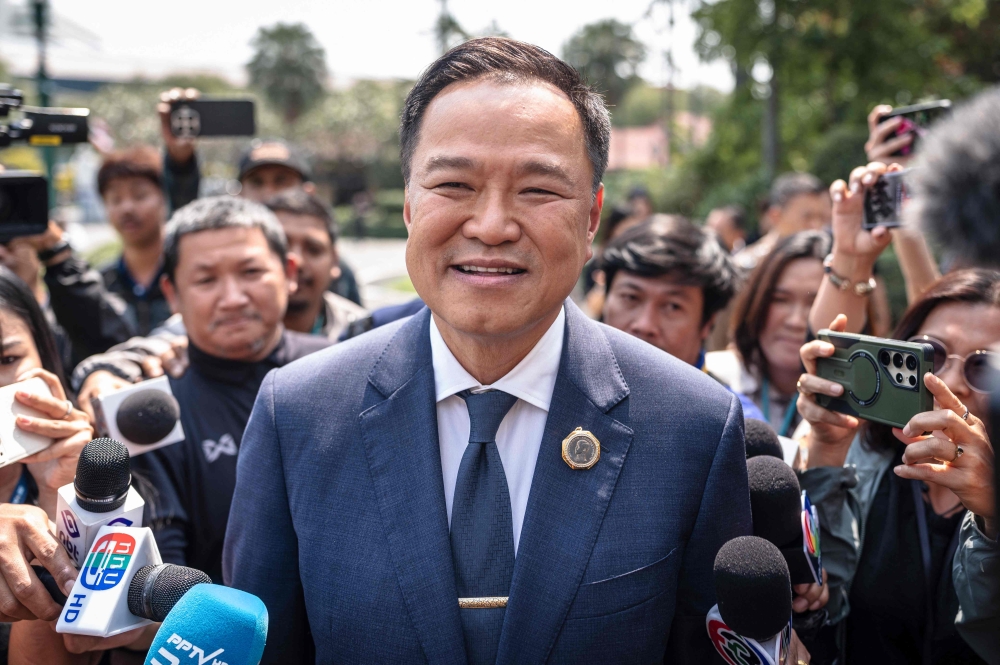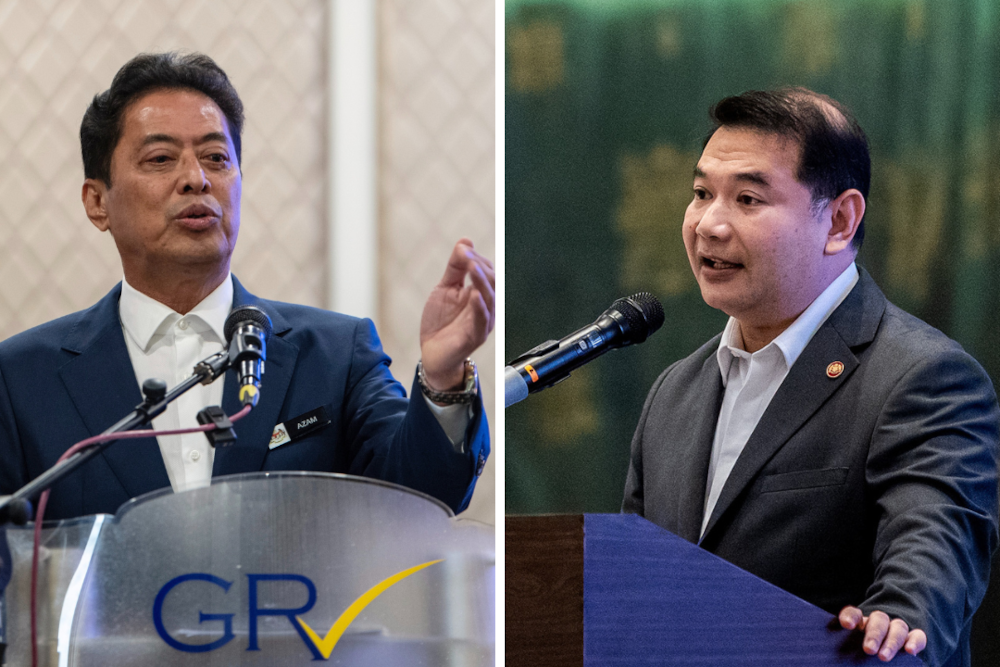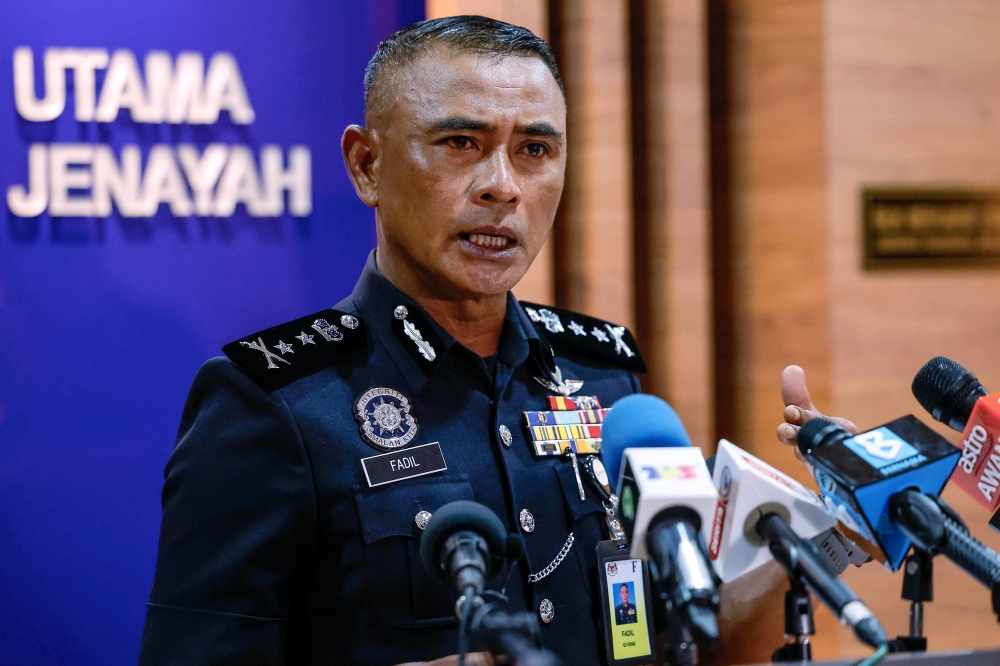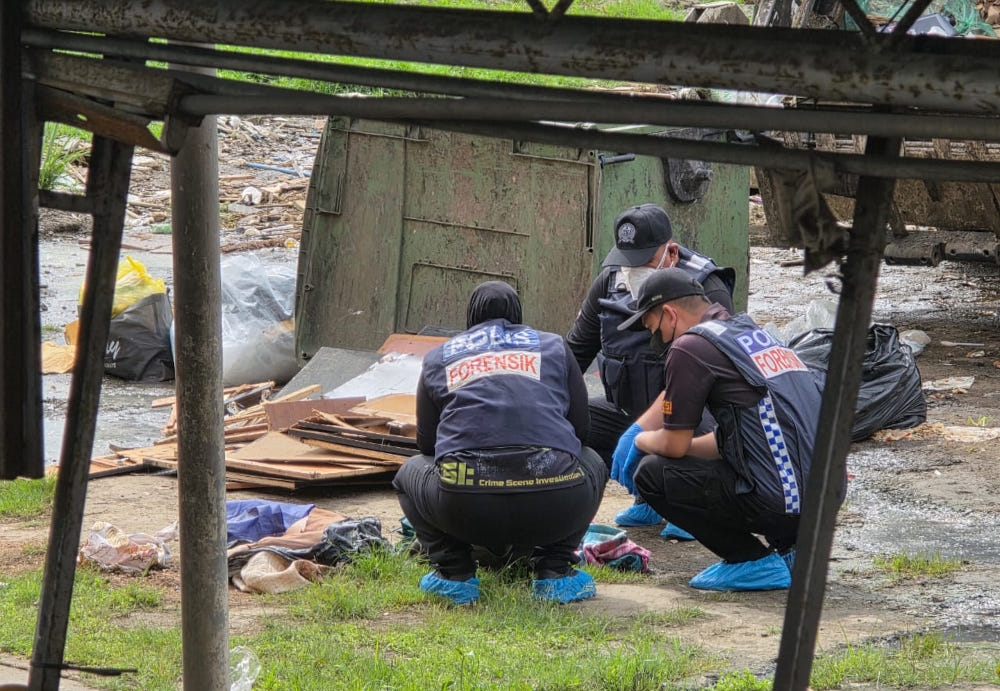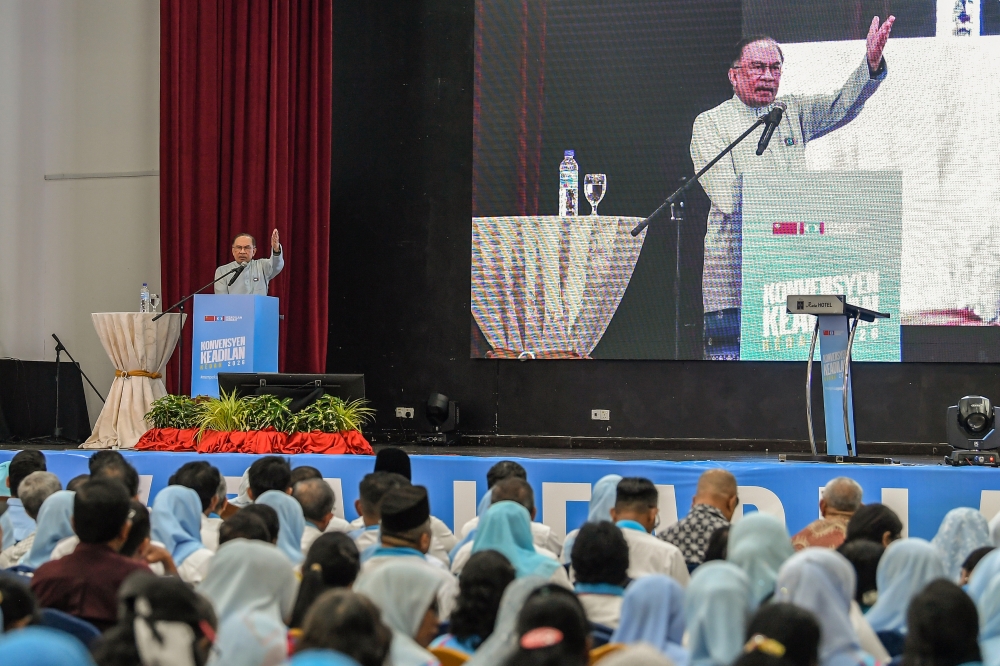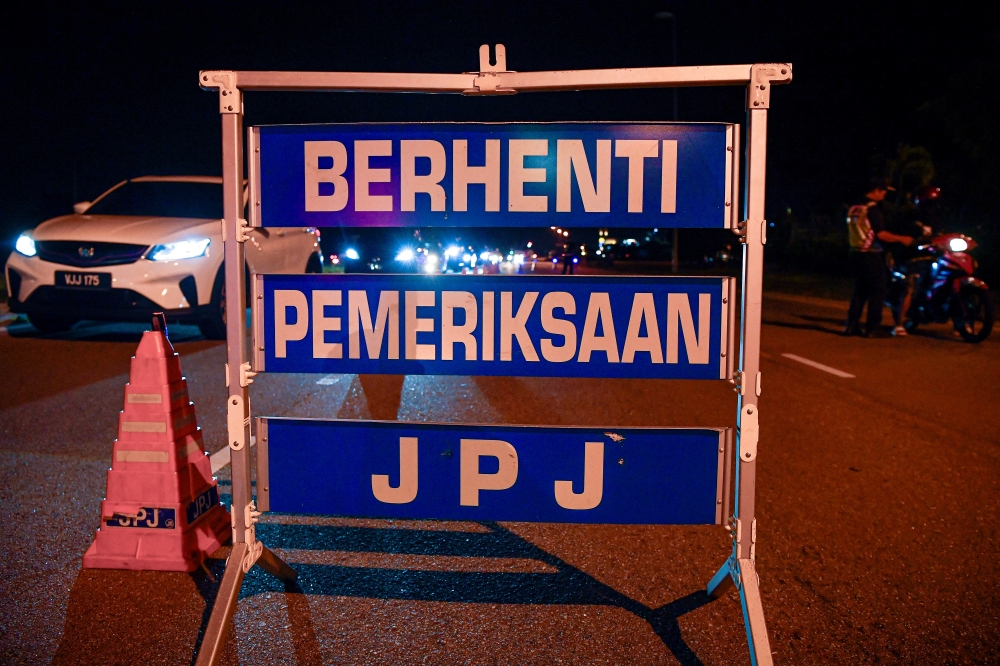KUALA LUMPUR, Aug 7 ― Prime Minister Tan Sri Muhyiddin Yassin on Wednesday defied calls for him to step down despite claims that his government has lost its majority following 10 Umno federal lawmakers’ declaration they no longer back the Perikatan Nasional (PN) government.
In a press conference broadcast live on television, he maintained that he has majority support in the Lower House, even as Umno president Datuk Seri Ahmad Zahid Hamidi declared the collapse of PN government after some of his party’s MPs withdrew their support.
Zahid suggested 11 Umno members of parliament, including himself, have signed a declaration to reject Muhyiddin’s leadership in letters already presented to the Yang di-Pertuan Agong. However, there are reports that only eight MPs have signed the letter instead.
On paper, at least, Muhyiddin’s Perikatan Nasional appeared to be at risk of losing its majority. Together with the 105 seats from the Opposition bench, the anti-PN faction now consists of 116 federal lawmakers from the 222-seated House. A simple majority is usually 112, but is currently 111 as two seats are vacant due to the deaths of the incumbents.
The prime minister insisted on Wednesday that he still has the numbers, and concluded after that the question of him stepping down “does not arise”. He vowed to prove it through a vote of confidence when Parliament’s Lower House convenes in September.
What happens now?
James Chin, political analyst with the University of Tasmania, believes that only holding a confidence vote in September will give Muhyiddin time to shore up support for his PN.
Chin also believes that the Opposition bench is also likely to begin its own negotiations, ostensibly with the aim of getting both backbenchers opposed to the PM and possibly the undecided to back their choice for the prime minister’s post.
“I think it’s fairly obvious what’s going to happen next. Both sides will be scrambling to collect as many MPs as possible for the sitting in September,” the analyst said.
“I also think the Opposition side will try to put public pressure to try and get Muhyiddin to hold the sitting (immediately). They’re likely to want the date to be somewhere this month so that there’s less chance for Muhyiddin to influence enough MPs to switch sides.”
Wong Chin Huat, political science professor at the Jeffrey Sachs Center on Sustainable Development, echoed the view and expects some MPs to sway from one side to the other up to the very last minute before a vote is held.
“The vote should have been tomorrow or next week instead of next month. The PM is trying to buy time so that he can reverse some of the defections and recruit Opposition MPs including some minority parties to rescue his collapsing government coalition,” he said.
“The difference in the number of rebels thus far… could mean some of the 11 present in Zahid’s press conference yesterday have either retracted their withdrawal or not yet submitted their withdrawal on paper,” Wong added.
“Get used to these changes until the D-day. As what we saw in the Sheraton Move, some MPs may change their positions twice or thrice.”
Can we expect new alliances to form?
There have been suggestions that Pakatan Harapan, together with Warisan, Pejuang, Muda, Upko, PSB could form an alliance with the Umno 11, based on rumours that emerged in the past that Zahid and Opposition Leader Datuk Seri Anwar Ibrahim have formulated some sort of pact together.
Chin argued, however, that it was still too early to tell.
“It’s quite obvious that it’s a little early to say because everything is up in the air. All sorts of coalition is possible so I wouldn’t be surprised, for example, that Muhyiddin would cut a deal with Anwar,” he said.
“The scenario will change if Muhyiddin falls or survives the vote of confidence. So it’s too early to second guess.”
On the other hand, Wong said focus will be on the split in Umno as the pro-Zahid faction and those aligned to Muhyiddin vie for dominance. Both sides will be fighting for survival.
For the former group, the analyst believes they would need to convince more party leaders to desert Muhyiddin or risk a reverse takeover of Umno. Success would be detrimental to the pro-Muhyiddin faction whose leaders risk ostracisation by the party grassroots.
“A failed revolt means the reverse takeover of Umno by Muhyiddin loyalists who will, in turn, deny the rebels candidacy under Umno in the 15th general election,” Wong suggested.
“The stake is so high that the rebels must take more of their colleagues out of the government bench. If more ministers or deputy ministers leave the government, those who stay back with Muhyiddin will face tremendous pressure from the party grassroots.”
Can the Opposition take over?
This could be tricky since the Opposition bench itself is divided at the core, even if they agreed on opposing Muhyiddin.
PH will insist on Anwar but is unlikely to get support from Pejuang, led by two-time former prime minister Tun Dr Mahathir Mohamad, and Warisan, led by Datuk Seri Shafie Afdal.
On Umno’s side, Zahid has said repeatedly the party rejects any proposition that involves working with Anwar or DAP, a key PH component.
From a constitutional perspective, Wong said failure to agree on a prime minister candidate means Muhyiddin could still continue as the head of a minority government.
Still, Muhyiddin’s position was not certain. Wong listed three possible scenarios in September.
First, Muhyiddin survives by co-opting some rebels or Warisan or Pejuang. Second, a new prime minister emerges, likely with his deputy Datuk Seri Ismail Sabri Yaakob, taking over to defuse tension and appease factions in Umno pushing for the party to take the driver’s seat.
A third but unlikely scenario would see a new government installed with Umno leaders in the Muhyiddin camp turning against the PN by aligning with PH. Wong suggested whether or not this will happen hinges on how deep the fissure is in Umno.
But why have not all of Umno’s 38 MPs acted in unison to reject Muhyiddin and pave the way for Ismail Sabri to take over? Wong put this down to bad blood, distrust and rivalry between some of the party’s personalities.
“The main problem is no one can guarantee the success of the revolt,” he said.
“If the rebellion fails, the rebels will pay dearly in personal career. So, some believe and/or argue, for Umno's best interest, it is better to work with Bersatu until GE15 is called. Others just wait and see.”



